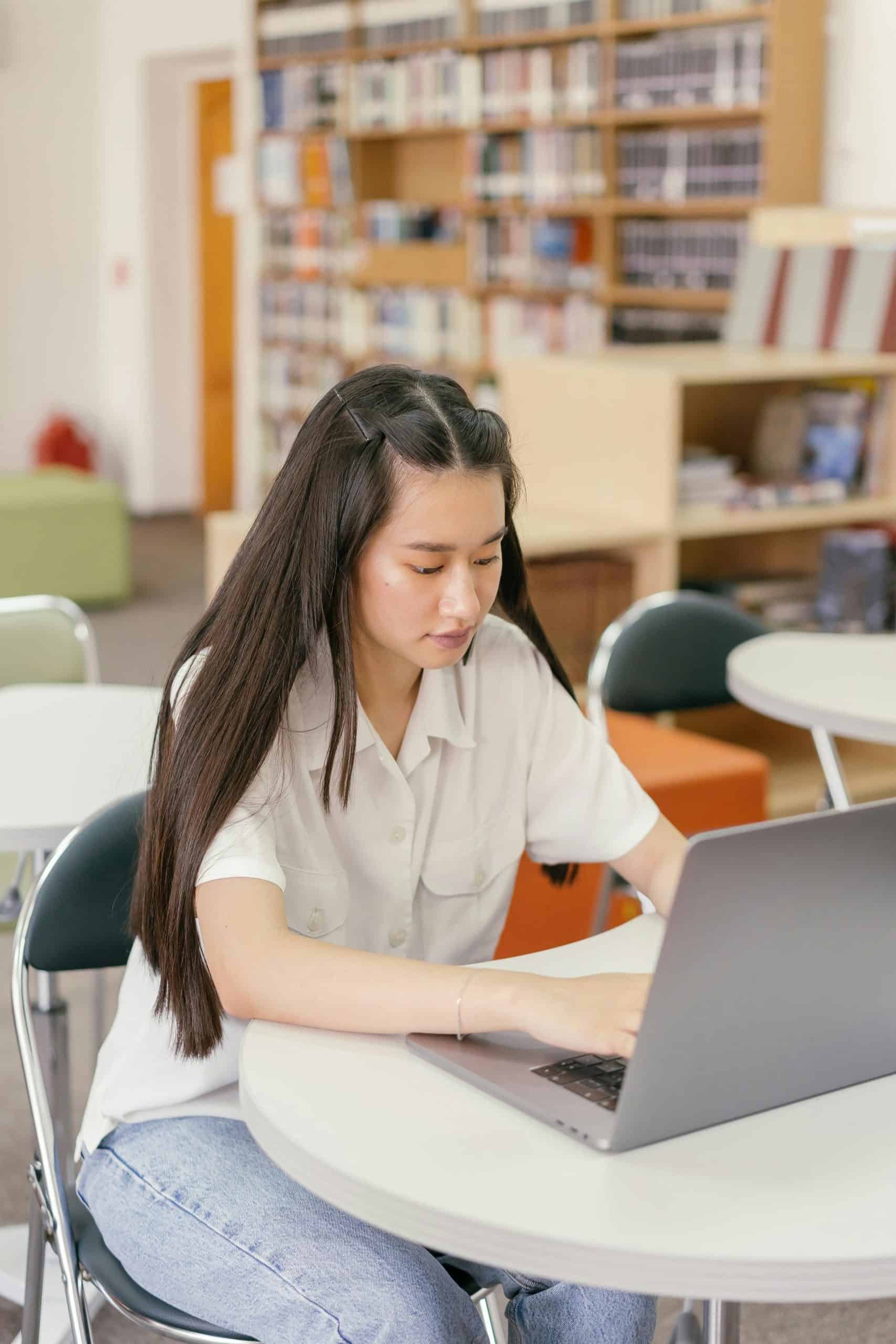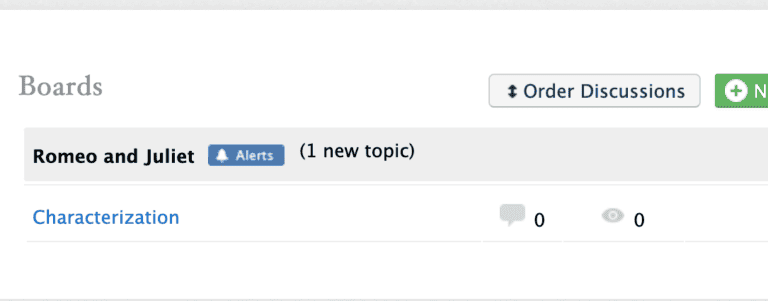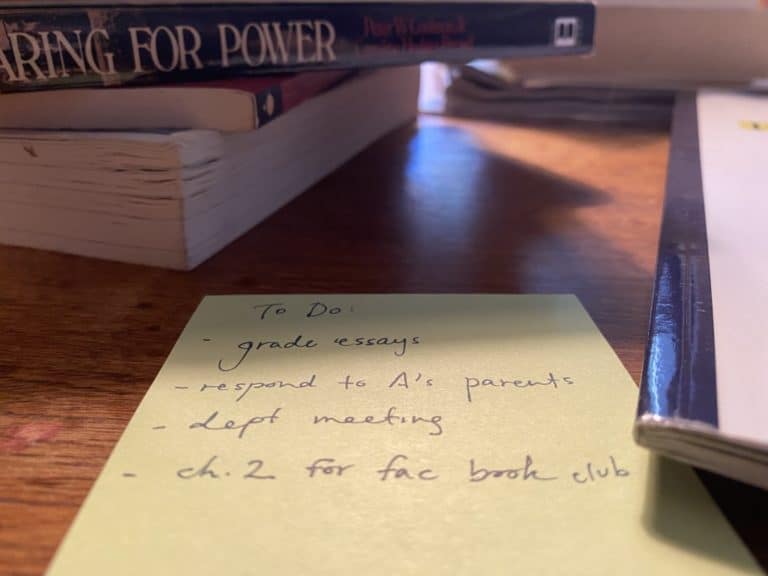Can AI Help a R.E.A.L.® Discussion?
by Dr. Ralph Covino
Much has, obviously, been written about the dawn of the AI era with all the wild speculations about how AI will change the face of education as we know it. Some predict it will not only revolutionize education, but eliminate some sectors of it; they may well be right and only time will tell. There have been many moments since the release of ChatGPT where the shades of the Korean teaching robots that were going to replace us all a few years ago seem to be haunting us, only now it’s “You won’t lose your job to AI; you will lose it to somebody who can use it well…”
Embracing – Not Fighting – AI
We have by now, I suspect, arrived at the point in time where we accept that AI-informed education is not only here, but here to stay. Even the College Board bent to its mighty power and came up with an acceptable use policy for the AP Seminar and Research courses (see the CED for Seminar here, pp. 36-39). The College Board recognizes that AI will become, if it is not already, students’ first stop in the research process. Rather than foolishly trying to hold back the tide (remember teachers trying to stop students using Wikipedia? Oh, no, wait, that’s still going on…), the College Board seeks to have instructors guide students as to how to use AI effectively to support inquiry and research rather than to replace those skills, which is an admittedly admirable and lofty ambition – and undoubtedly ultimately doomed. Per the College Board’s guidelines, using AI to explore ideas and find sources – or even to rephrase or repackage source material in ways that are more accessible to the student – are all fine; using AI to synthesize materials, write reports, form or frame arguments, though, crosses a line. AI can do those things, though, and do so in a way that detectors cannot reliably detect (for now), and students know it.
In the course of my work with my 7th grade humanities class, I have tried to introduce AI as a tool and keep to the same guidelines they will eventually encounter in Seminar. We have quizzed ChatGPT on various aspects of the ancient world, for example. The girls in my class have learned that AI is pretty decent at understanding the big picture, but its responses’ general lack of detail and specificity would render it largely ineffective for cheating on the sort of assessments they take.
The Role of AI in R.E.A.L. ® Discussion Prep
At the same time, though, I showed them that AI can provide reasonably decent feedback on answers THEY write — but only if it is trained on our grading rubric. I taught the girls how to input not only rubrics but also course materials and past assessment questions; they are free to use AI to generate new questions to test their knowledge as a possible means of assessment preparation (I fully anticipate that later in their educational careers they will have teachers using AI to set the questions, so I may as well give them a leg-up, right?). In hindsight, it should have been clear that eventually one of them would want to use AI to practice for our R.E.A.L.® discussions.
I had never considered this eventuality. R.E.A.L.® is meant to be all about the in-person dynamic and making human connections through discussion, relating writ large. Because I am ancient analog-childhood old me, I am wired to think of in-person debate, dialog, and dialectic as paths to truth that can only be tested in the moment and face-to-face. Kids today, though, default to the digital for their solutions. If R.E.A.L.® is sometimes awkward if/because it is in person, it is surely only natural for digital natives to seek a digital way to circumvent that discomfort. Enter the ask about digital prep work.
Such prompted a range of questions for me that would, in themselves, make for great DQs. Would discussion quality suffer if my girls, say, asked the AI to identify the most likely responses to their opinion and evidence? What about prepping by asking AI the DQ itself? Is that fair use or too far? How long would it take students to go from using AI to prepare for various eventualities to using it to do the whole of the prep for a discussion? Could we end up in a situation where the girls were all sitting around a table reciting AI-formed opinions and evidence at each other? If so, would that mean that discussions would become as pointless as the dreadful parent-scribed oral report scripts of yesteryear?
In the end, I decided to allow my girls to use AI for whatever prep they would like to use it for when it comes to our R.E.A.L. ® discussions, largely because I have faith in human nature. Unlike in a putative ChatGPT-land, where every cyber-discussant would stay laser focused as well as grammatically correct, real life and real discussions have bumps, curves, and swerves that cannot be predicted purely due to the fact that other people are involved. In a real life R.E.A.L. ® discussion, somebody might pull the old debating trick of squirreling the DQ, defining something in it in an unexpected way that sets the discussion off on an unpredicted course. A non sequitur might appear. People can change their mind mid-sentence. That one student flexing on the Ask skill could ask a discussion-shifting question that either concretizes or eviscerates the evidence of the previous speaker. Because R.E.A.L. ® discussion is ex tempore, so too must students’ reactions be. If AI assistants can help students get better at reacting in the moment with actual other human beings, then, can they really be all that bad?
—
Dr Ralph Covino teaches Latin, History, and Geography and the Coordinator of the Humanities Department at the Girls Preparatory School in Chattanooga, TN. He has been recognized by the University of Tennessee Alumni Association, Tennessee Geographic Alliance, and National Geographic as an outstanding educator. A previous teacher fellow of the Belin-Blank Center for Gifted Education and Talent Development at the University of Iowa and of the American Geographical Society, he is currently a Fellow of the International Coalition of Girls’ Schools’ Global Action Research Collaborative on Girls’ Education.






